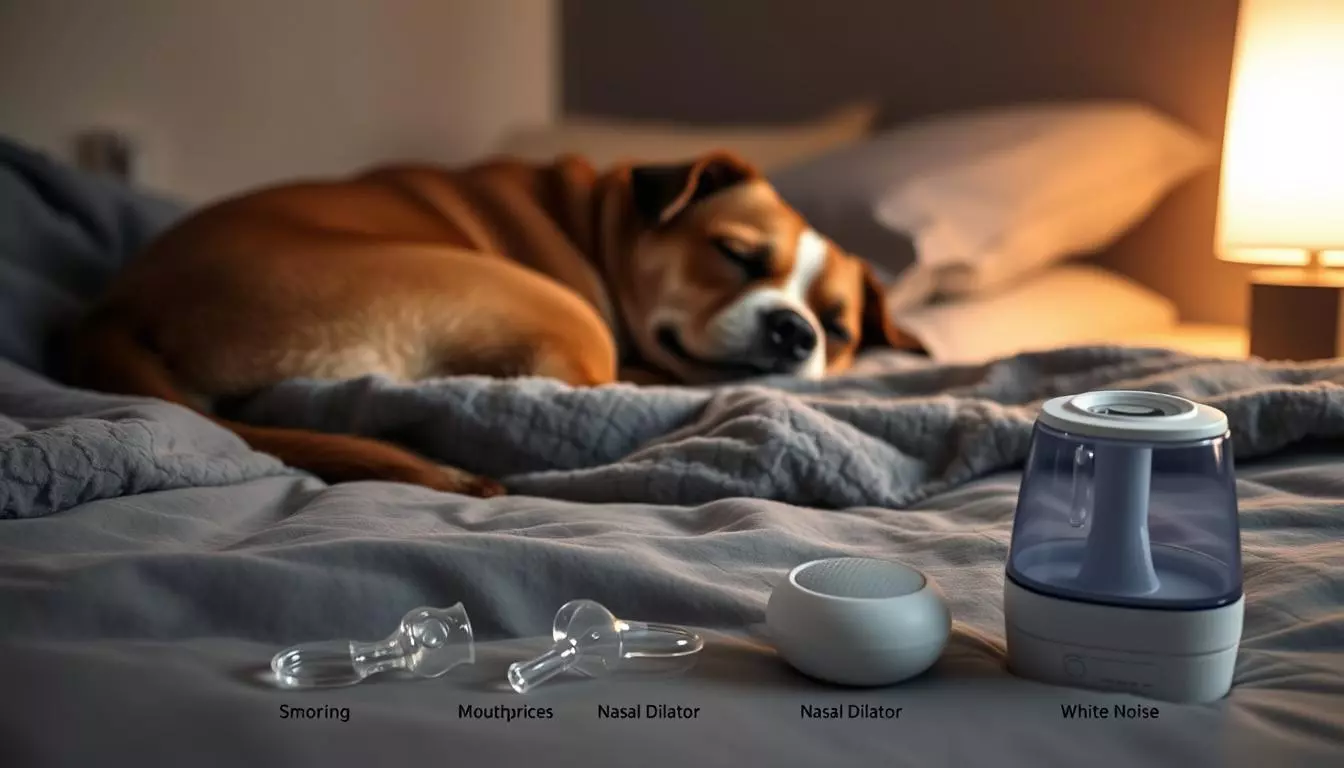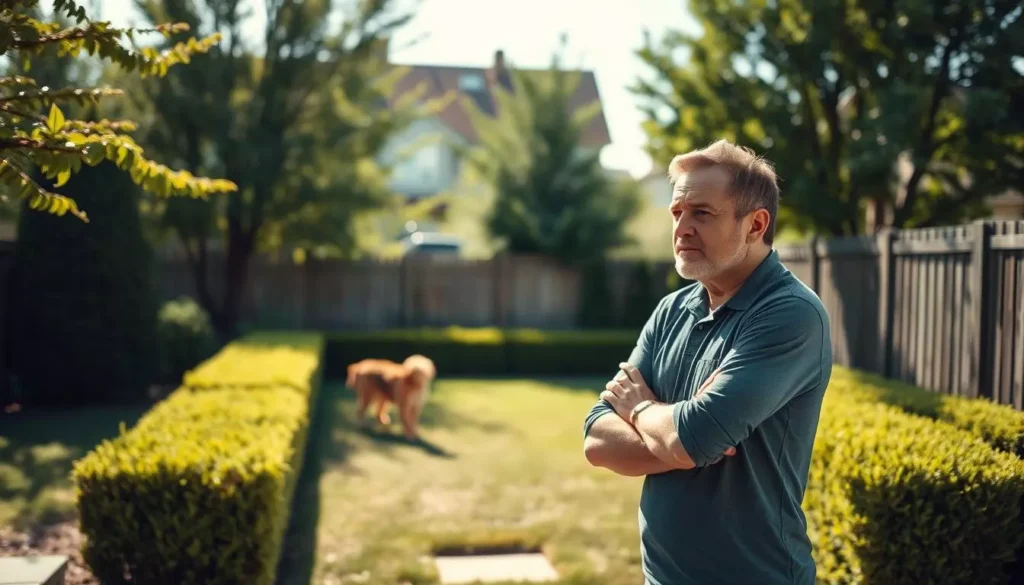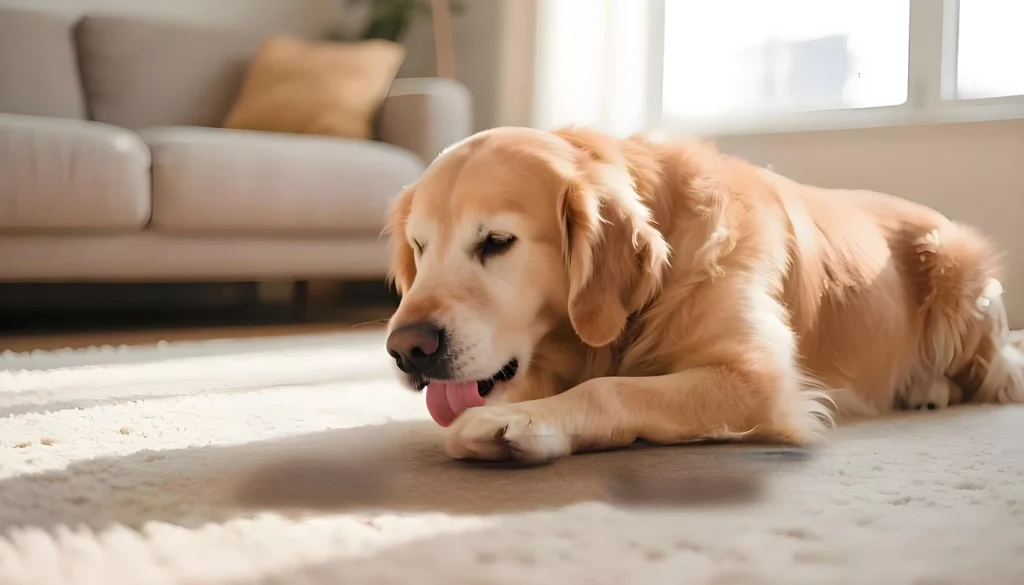Listening to my dog snore is heartwarming. But when it turns into loud snorts, it's not so charming. It disrupts my sleep and makes mornings tough for both of us.
If you're in the same boat, you're not alone. Many dog owners want to know how to stop their pets from snoring. Luckily, there are ways to help your dog sleep better and yours too. Let's explore how to have peaceful nights together.
Key Takeaways
- Understanding the causes of dog snoring is essential for effective solutions.
- Various techniques are available to help minimize or eliminate snoring.
- Making changes to your dog's sleeping environment can significantly impact their snoring.
- Regular vet check-ups can identify any underlying health issues related to snoring.
- Weight management is crucial for reducing snoring in dogs.
- Adjusting sleeping positions and using supportive bedding can help alleviate snoring.
- Addressing allergies can lead to better breathing and reduced snoring.
Understanding Why Dogs Snore
Exploring why dogs snore helps pet owners find ways to help. Many factors contribute to dog snoring, tied to their physical traits and health. Knowing these can help me find ways to stop my dog's snoring.
Common Causes of Dog Snoring
Several things can cause dogs to snore. The main reasons include:
- Obesity: Too much fat around the neck can narrow the airway.
- Allergic reactions: Allergens can make nasal passages swell, causing snoring.
- Sleeping position: Some sleeping positions can press on the airways.
- Infections: Respiratory problems can cause inflammation and blockages.
- Foreign bodies: Objects in the airway can block breathing.
How Dog Anatomy Affects Breathing
Different dog breeds have unique anatomy that affects breathing. Breeds with shorter snouts, like Bulldogs and Pugs, often snore more. This is because their airways are narrower. Knowing this helps me understand why some dogs snore more and how to stop it.
The Impact of Breed on Snoring
Understanding how dog breeds relate to snoring is key. Some breeds are more prone to snoring because of their body shape. Knowing which breeds are more likely to snore helps owners manage their pets' sleep better.
Which Breeds Are Most Affected?
Bulldogs, Pugs, and Boston Terriers often snore. Their short airways and flat faces can block airflow. This leads to loud snoring during sleep. Owners can adjust their care to help their pets sleep better.
Special Considerations for Brachycephalic Breeds
Brachycephalic breeds face big snoring challenges. Their short nasal passages can cause breathing problems. It's important to watch these dogs closely and make lifestyle changes to help them breathe better. Regular vet visits are also crucial to catch any serious issues early.
| Breed | Characteristics | Breathing Issues |
|---|---|---|
| Bulldog | Short muzzle, wide skull | Frequent snoring, potential sleep apnea |
| Pug | Compact body, flat face | Commonly experiences snoring, difficulty breathing |
| Boston Terrier | Small size, brachycephalic structure | Susceptible to snoring, increased respiratory stress |
Recognizing the Health Implications of Snoring
As a dog owner, it's important to watch your pet's snoring. Some snoring is okay, but constant snoring might mean a bigger problem. Knowing the causes can help you decide what to do for your dog.
When Snoring Is a Sign of a Health Issue
Don't ignore your dog's snoring, especially if they have other symptoms. If your dog starts snoring suddenly or shows signs like nasal discharge, sneezing, or being really tired, pay attention. These could be signs of allergies or breathing problems that need help.
Consulting Your Veterinarian for Persistent Snoring
Knowing when to see a vet for your dog's snoring is key. If the snoring doesn't get better or if you see other worrying signs, get help. A vet can check your dog and find out why they're snoring. They might find something simple like allergies or something more serious that needs treatment or surgery.
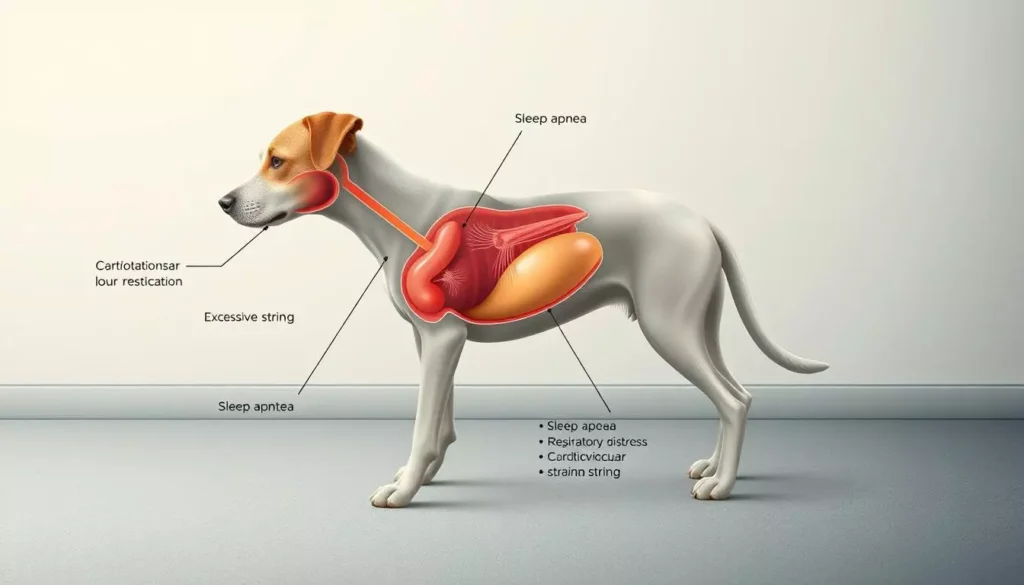
| Symptoms | Possible Health Issues |
|---|---|
| Sudden Snoring | Respiratory infections, allergies |
| Nasal Discharge | Sinusitis, nasal tumors |
| Chronic Fatigue | Obstructive sleep apnea, heart problems |
| Changes in Appetite | Dental issues, gastrointestinal concerns |
How To Stop My Dog From Snoring Naturally
Stopping dog snoring naturally can seem hard, but there are easy home remedies. Changing my dog's sleep area can help a lot. By making small changes, we can help them sleep better.
Simple Home Remedies for Dog Snoring
Here are some simple ways to reduce dog snoring:
- Adjusting sleeping positions: Changing how they sleep can help. Encouraging them to sleep on their side might help.
- Utilizing a humidifier: It can help with breathing problems that cause snoring.
- Providing a comfortable bed: A good dog bed supports their body and helps them sleep better.
- Ensuring good ventilation: A well-ventilated area helps prevent stuffiness and improves air quality.
Adjusting Your Dog’s Sleeping Environment
A peaceful sleep area is key to reducing snoring. Consider these factors:
| Factor | Effect on Snoring |
|---|---|
| Air Quality | Poor air quality can irritate the throat, making snoring worse. |
| Temperature | Keeping a moderate temperature prevents overheating, which can affect breathing. |
| Noise Levels | Minimizing noise can lead to deeper sleep, reducing the likelihood of snoring. |
| Allergen-Free Area | Reducing allergens can help prevent any allergic reactions causing snoring. |
How to Get a Dog to Stop Snoring
Reducing my dog's snoring has been a top goal. I found that opening airway passageways is key. Making small changes to their sleep setup helps them breathe better and sleep more soundly.
Techniques for Opening Airway Passageways
One easy trick is to elevate my dog's head with pillows. This helps prevent airway blockage and makes breathing easier. Also, changing my dog's sleep position can make a big difference. Sleeping on their side keeps the airways open.
Using Pillows and Support for Better Sleeping Positions
Comfortable sleep arrangements are vital for reducing snoring. Supportive pillows or dog beds can improve my dog's posture. These changes have helped open airways, leading to quieter nights for us both.
Addressing Allergies to Reduce Snoring
Understanding allergies is key to solving dog snoring problems. Many dogs face environmental allergens. Finding these triggers can help reduce snoring. A proactive approach makes a better home for our pets.
Identifying Environmental Allergens
Common allergens in dogs include pollen, dust mites, and mold. Identifying these can help. Here are some steps:
- Watch for seasonal patterns in your dog's snoring.
- Look for dust buildup at home.
- Use air purifiers to clean the air.
Reducing exposure to these allergens can help your dog sleep quieter.
Dietary Changes to Combat Food Allergies
Food allergies can cause snoring by swelling airways. Changing your dog's diet can help. Here are some tips:
- Switch to hypoallergenic dog food.
- Get help from a vet to find food allergens.
- Try a limited ingredient diet to find sensitivities.
These diet changes can help your dog with snoring and feel better overall.
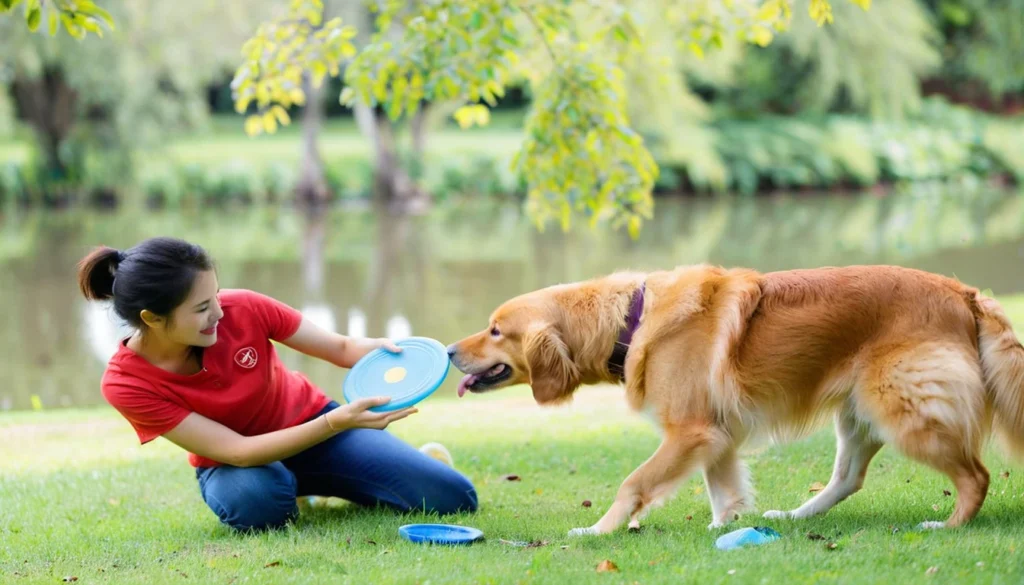
Weight Management as a Dog Snoring Solution
Managing my dog's weight is key to reducing snoring. Too much weight can block airflow in the throat, making snoring worse. A good plan for weight management includes diet and exercise. It helps with snoring and keeps my dog healthy.
Creating an Effective Weight Loss Plan
To fight weight-related snoring, a structured weight loss plan is needed. This plan should include:
- Caloric Monitoring: Tracking daily calories helps keep my dog healthy.
- Personalized Diet: Getting diet advice from my vet meets my dog's needs.
- Regular Meal Schedule: Eating at the same times helps with digestion and weight.
Incorporating Regular Exercise for Your Dog
Along with diet changes, regular exercise is crucial for weight loss. Daily activities can be:
- Daily Walks: Brisk walks burn calories and build stamina.
- Playtime Sessions: Fun games like fetch keep my dog active and happy.
- Interactive Toys: Toys that encourage movement keep my dog active indoors.
Adjusting Sleeping Positions for Less Snoring
Changing how my dog sleeps can really help with snoring. Some sleeping positions can block their airways, making snoring worse. But, other positions can help them breathe better and make nights quieter.
The Best Sleeping Positions for Dogs
Dogs often pick their favorite places to sleep, but some spots can make snoring worse. I've found that when my dog sleeps on their side or with their head up, they snore less. Sleeping off their back helps keep their tongue from blocking their airway.
Choosing the right dog bed is also key to reducing snoring. Ergonomic beds support their body and help them sleep better. Beds with raised edges or special shapes keep their head up, improving airflow and making nights quieter for everyone.
Cleaning and Maintaining a Snoring-Friendly Environment
As a dog owner, I know how important a comfy sleeping spot is for my pet. Keeping the air clean is key. The air they breathe affects their health, including how much they snore.
How Air Quality Impacts Dog Breathing
Indoor air quality is crucial for my dog's breathing. Dust, pollen, and pet dander can make breathing harder. Cleaning regularly helps get rid of these allergens.
I vacuum often and wash my dog's bedding. This keeps their space clean and free from allergens.
Utilizing HEPA Filters to Reduce Allergens
Using HEPA filters has helped a lot. They catch many airborne particles, cutting down on allergens. I put HEPA filters in my dog's favorite spots.
This small change has made a big difference. It helps my dog breathe better and sleep more soundly, reducing snoring.

Preventing Snoring by Managing Airflow
Creating a comfy and healthy sleep spot for my dog helps cut down on snoring. It's key to manage airflow to let them breathe well while they sleep. By focusing on air flow around their bed, I can cut down on snoring.
Understanding the Importance of Open Airways
Keeping airways open is crucial for my dog's breathing. Clear passages mean less snoring. I watch their sleep position and make sure they have room to stretch.
Blocked airways often cause snoring. So, taking steps early can really help.
Benefits of keeping a Clear Sleeping Space
Clearing out their sleep area helps dogs breathe better. Clutter can block air, leading to snoring. I keep their bed area tidy and well-ventilated.
| Tip | Description |
|---|---|
| Regular Ventilation | Open windows to allow fresh air in, promoting better airflow in the sleeping area. |
| Minimal Clutter | Keep the dog's sleeping area free from toys and other items that may restrict movement or airflow. |
| Monitor Sleeping Positions | Adjust my dog's blanket or bed to ensure they maintain a position that keeps airways open. |
| Use Suitable Bedding | Opt for bedding materials that allow for air circulation, helping to maintain a comfortable temperature. |
Exploring Surgical Options for Serious Cases
In some cases, snoring in dogs can be a sign of deeper health issues. This is especially true for brachycephalic breeds, which may face more airway problems. Knowing when surgery is needed is key to keeping a dog healthy and comfortable.
When Is Surgery Necessary for Dog Snoring?
Surgery might be needed if a dog's snoring impacts its life quality or causes severe breathing issues. Signs like hard breathing, too much tiredness, or changes in behavior are red flags. A vet can help decide if surgery is the right choice.
Types of Surgeries for Brachycephalic Dogs
There are several surgeries to help with snoring in brachycephalic dogs. These include:
- Soft Palate Resection: This surgery removes extra tissue from the soft palate. It helps open the airway and reduce blockage.
- Stenotic Nare Surgery: This fixes narrow nostrils, which can block airflow.
- Laryngeal Saccule Ablation: Removing saccules in the airways can help with severe blockage and improve breathing.
These surgeries can help dogs breathe better, reducing or stopping snoring. If surgery seems like a good option, find a vet who specializes in brachycephalic surgery for snoring.
Daily Care Practices to Minimize Snoring
As a dog owner, I've learned that daily care can really help reduce snoring. One key part is regular vet visits. These check-ups are crucial for keeping your dog healthy and spotting snoring causes early.
Regular Check-Ups with the Vet
Regular vet visits are a must. They let the vet check your dog's health, including breathing. This way, you get advice on how to manage snoring. Staying in touch with your vet helps catch health issues before they get worse.
Monitoring Weight and Activity Levels
Watching your dog's weight and activity is important. A good diet and exercise keep them healthy. Keeping a log of their food, play, and exercise helps spot snoring patterns. This can help prevent breathing problems at night.
Trying Over-the-Counter Remedies for Dog Snoring
Over-the-counter remedies can help with dog snoring. These products come in many forms, each tackling snoring in its own way. Some help with breathing, while others fight allergies that make snoring worse.
What Remedies Are Available?
There are many products out there. Here's a quick look at some popular ones:
- Airway supplements: These have L-arginine and omega fatty acids to help breathing.
- Allergy medications: They help with allergies, making breathing easier.
- Snore-reducing sprays: These sprays can make the throat and nose smoother, reducing snoring.
Evaluating the Effectiveness of Dog Anti-Snoring Products
Looking into dog snoring products, I saw mixed results. Always talk to a vet before trying new products. They can help pick the best one for your dog, making sure it's safe and effective.
Pet Owner Experiences and Anecdotes
Sharing stories about dog snoring can be very helpful. Many dog owners have found ways to deal with their pets' snoring. These stories show that there are often simple solutions.
Success Stories in Dog Snoring Reduction
Success stories can really help. A friend changed her dog's bed to help with snoring. This small change made a big difference. Such stories give us hope and ideas to try.
Community Feedback on Solutions Tried
Talking with others can be very helpful. People share what works for their dogs, from supplements to special beds. Hearing about these solutions makes us feel more confident in trying them out.
Conclusion
Addressing dog snoring needs a mix of approaches to improve our sleep quality. I've found that knowing my dog's snoring pattern is key. Solutions range from changing their sleep spot to looking into surgery for serious cases.
To help my dog stop snoring, I focus on their unique needs. Making diet changes, managing allergies, or adding exercise helps a lot. Every little change brings a quieter night.
Working with my vet and using the tips from this article helps a lot. It makes our home quieter and our time together better. Understanding and using these solutions has greatly improved our lives.

